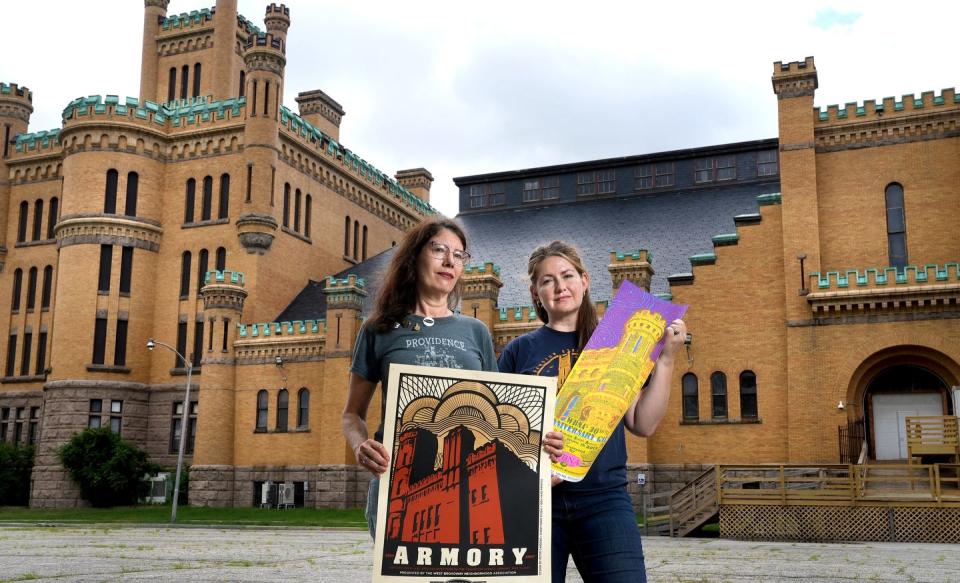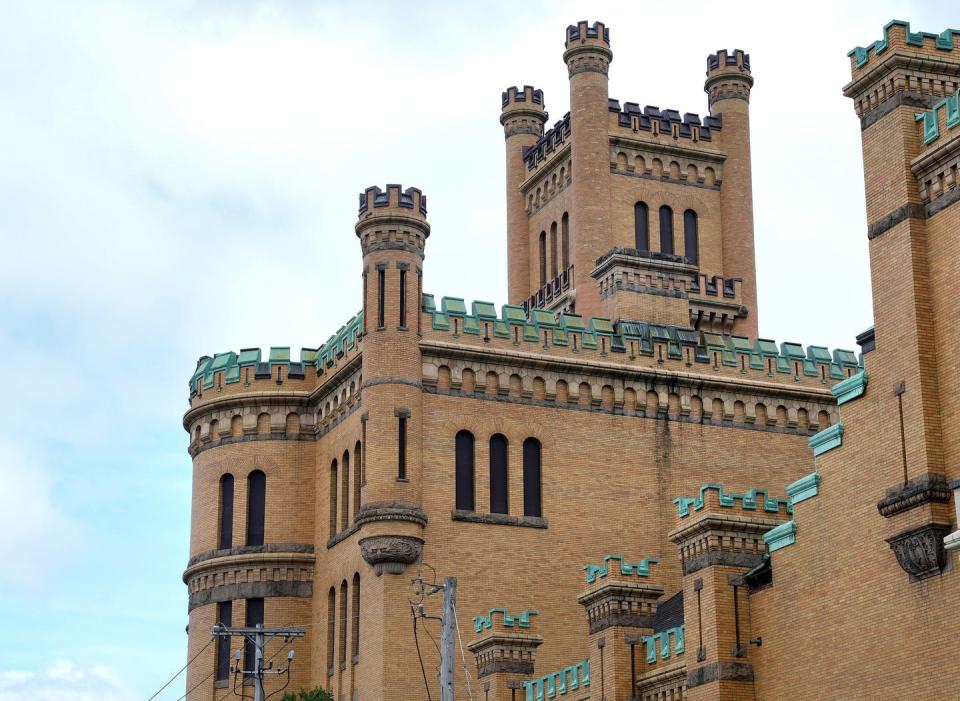Anger and questions directed at McKee administration after armory project is canceled
- Oops!Something went wrong.Please try again later.
PROVIDENCE – Gov. Dan McKee's decision to cancel the state's contract with the Philadelphia-based Scout Ltd. to remake the empty Cranston Street Armory into a hub of activity has sparked anger, frustration and a mountain of unanswered questions.
The anger has been spilling out on Twitter.
Sam Bell, the state senator who represents the Armory neighborhood, accused McKee of "retribution" against the whistleblowing Scout for "reporting extortion and sexual harassment" by former state property manager David Patten during a now-infamous March trip to Philadelphia.
Echoed neighborhood activist Rebecca Atwood: "The governor of Rhode Island sounding truly deranged as he tries to rationalize penalizing a whistleblower who called out sexist, racist, anti-Semitic behavior from his top officials."
"There was a plan to redevelop the armory that centered [on] the community,'' added Rep. Rebecca Kislak. "It would’ve been great! We invest $ in some communities all the time; now we’re going to spend millions to maintain [the building] instead."
"Why can’t we have nice things?" she asked.

Neighborhood members call for face-to-face meeting with McKee
In a letter to top Department of Administration officials on Monday night, Kari Lang, who led the West Broadway Neighborhood Association for more than 25 years, requested a face-to-face meeting between McKee and the steering committee members whose efforts helped shape the original request for proposals and selection of Scout.
"It is now time to restart the process, to repair the harm done to the state from the recent debacle in Philadelphia, and to repair the harm done to the stakeholders who believed that something would FINALLY happen with the armory," she and other members of the steering committee wrote.
More on the Armory: For decades they pushed to revive Cranston Street Armory. All they have is an empty shell.
McKee: 'We want to keep this project going'
The McKee administration has not responded directly to the torrent of anger and disappointment emanating from activists in the Providence neighborhood surrounding the armory since he announced his decision to terminate Scout's contract on Monday.
Pointing to the findings of the real estate firm he hired to review Scout's proposal, he said: it was not in the state's interest, though he was open to turning the building over to the city to develop, with some as-yet-undefined state support.
"It's not a statewide project, and the taxpayers should not bear the cost of a local project that is good for the local community and not necessarily good for all the taxpayers in the state," he said.
But he said the project, in his mind, isn't dead. Citing discussions with Providence Mayor Brett Smiley about possibly handing the building over to the city, he said: "This keeps the project going. We want to keep this project going. We want, the state wants, to make sure that if that something happens there that's positive."
One option McKee cited: the state giving the city an estimated $16 million from an $80-million pool of leftover federal relief dollars to create a "community center" in the armory that includes one of the out-of-school "municipal learning centers" he wants to establish statewide.
"We're not going to insist that any of that is done. We're just using this as an example where we can provide support," he said.

Questions relating to Scout's contract still unanswered
Among the unanswered questions:
Why did Patten, the state's former property manager, sign a June 30, 2022, agreement making Scout the "master developer," no matter what, that the McKee administration now says in a contract-termination letter is illegal under state purchasing laws?
The agreement says in part: "If state fails to move forward with the project, but later decides to move forward with any development of the property, Scout will remain the master developer and state must contract with Scout."
Did Patten – who stepped down in June after being accused by Scout, in an email to the governor's office, of "inappropriate" conduct during a March visit to Philadelphia – sign off on this "memorandum of agreement" unilaterally or with the approval of his superiors?
(When asked, Department of Administration spokeswoman Laura Hart told The Journal: "The department has no further comment on legal matters.")
Where did the $19 million in federal relief dollars that Scout counted on for its $56.7 million armory remake go?
(Tracing the dollars is not easy, but in response to a Journal inquiry, House spokesman Larry Berman said: "The Governor never proposed using any of it for the Armory. His budget and subsequent amendments prioritized other things: housing, higher education etc.")
Why is McKee saying he was "never comfortable'' that the contract was structured in such a way that the developer here – unlike the private owners/developers of the stalled out Tidewater soccer-stadium project in Pawtucket – were investing "zero" of their own dollars in the remake of the state-owned armory?
In a tweet, a stunned Bell said: "Scout actually wanted to do that. And they wanted the building control and profit opportunities that would come with that. We all pushed back, based on overwhelming public feedback, *including the McKee administration.* And Scout listened."
Now, "McKee is attacking Scout’s proposal for a feature his own administration pushed for, based on overwhelming community feedback. We wanted a deal that maximized public benefit. We didn’t want a deal that maximized profit. The McKee administration agreed" before the email.
(Hart told The Journal: "The state did not turn down any proposals that involved the developer taking an equity stake in the armory project in exchange for reducing the public cost.")
But McKee drew this distinction between the state's commitment to the privately owned Tidewater project in Pawtucket.
McKee, who cast the tie-breaking vote for the Pawtucket project, said the state's commitment of a potential $50 million to the Tidewater developers is capped, while the state's risk under the now-canceled armory deal was limitless.
Top officials at Scout have not responded to Journal inquiries about McKee's move to terminate their contract.
This article originally appeared on The Providence Journal: Cranston Street Armory neighbors frustrated over dropping of project

